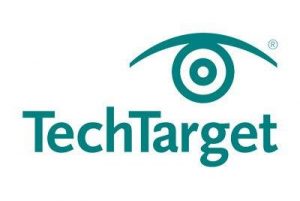
DataOps is a new tool for effective data use and improved data-driven decision-making. Kalypsonians JP Romero and Hector Rueda share insights on the top five DataOps challenges and how to overcome them

Autonomous manufacturing is a big topic in the tire sector, today, as producers seek to embrace digital technologies to transform their production operations. Join Mike Loughran as he learns more about this manufacturing revolution from his guests John Woods, Global Director, EMEA, and Jordan Reynolds, Global Director, Data Science & AI, both from Kalypso, a Rockwell Automation Company.

Mithun Nagabhairava explores how enterprises can optimize their existing digital operations with AI and automation that can help mature capabilities of digital intelligence, including what’s required and what the process looks like.

An established MDM practice is the foundation that supports risk-related and other business decision-making. Companies with established MDM capabilities have clearer visibility into their customers, suppliers and products, and thus are better positioned to deal with the unprecedented, whether it be a natural disaster, pandemic, disruptive competitor or a change in the regulatory environment.

Kalypsonian Rod Walters examines how companies can evolve toward what’s known as digital thread and digital twin technologies. It’s what happens when information silos are broken down to create frictionless, real-time sharing of data across the organization

Across many engineering organizations, the fear of changing longstanding ways of working is slowing adoption of more sustainable design practices. Engineers, more comfortable solving for traditional design objectives like performance or manufacturability, are skeptical about adding another “design for X” mantra to their already complex design workflows, notes Rein Singfield, senior consulting manager at Kalypso.

Digital thread and digital twin technology can help optimize operations and fuel improvements in product design and manufacturing processes, but only if companies avoid new data silos and choose interoperability. - Kalypsonian Rod Walters

In today’s global, extended value chains, complete visibility of information, collaboration and orchestration of both structured and unstructured data across the chain is vital for efficient technology transfer, quick scale-up and speed to market. - Kalypsonian Sachin Misra

If starting a business is one challenge, being on the toes in the ever-changing digital landscape, is quite another. Most companies struggle with innovation in terms of adapting themselves to new technologies as well as product innovation. Senior manager, Drew Cekada, talks with Analytics Insight

Autonomous systems, on the other hand, can learn how to perform tasks on their own and even adapt to changes in a process or environment, according to Jordan Reynolds, global director of data science at the management consulting firm Kalypso.

As more organizations are using the combined power of digital-thread and digital-twin capabilities to power their digital transformations to new levels of efficiency, productivity, uptime and growth, the strongest competitive advantage will come to organizations that not only adopt digital thread and digital twins, but also optimize the implementation of these capabilities in strategic applications and use cases where they can do the most good in the enterprise. -Rod Walters, principal & global practice leader of enterprise technology

Given the rise of AI in the food processing business, industry executives believe the benefits are worth the risks. For more insight, we spoke with Jordan Reynolds, global director of data science at Kalypso, a Rockwell business, about the use of AI in process control.

"Successful digital transformation requires adoption across your organization. Consider these ‘people-focused’ strategies to address issues that can slow your progress" - Chelsea Barnes, Senior Manager at Kalypso.

In this article, The Manufacturer speaks with Uwe Kueppers, Manager Consulting Services at Kalypso (a Rockwell Automation Company), and EMEA board chairman of MESA.

"Data users will always be the best judges of data accuracy," said JP Romero, technical manager of the enterprise information management practice at Kalypso, a digital technology and consulting company.

Manager JP Romero talked to VentureBeat about how concrete data and analytics now power businesses’ most critical decisions. To overcome issues related to data quality and accuracy, it’s critical to first know the context in which the data elements will be used, as well as best practices to guide the initiatives along.

“Data quality is a paramount necessity in the digital age when building robust digital twins and digital threads,” says Jordan Reynolds, global director of data science at Kalypso. “As volume and variety increase, so do necessities and challenges around data quality. An organization needs a strategy to enhance data quality in a manner that allows digital threads to be created.”

Rodney Holmes discusses the ongoing advance of artificial intelligence throughout the pharma industry and looks at how companies not yet invested in it can get started with AI

Recognized automotive and tire leader Aleksandar Boskovic has joined Kalypso, the digital services arm of Rockwell Automation helping some of the world’s largest and most influential companies, discover create, make and sell better products with digital.

Enabled by advancements in artificial intelligence (AI) and machine learning, more CPG companies are accelerating their adoption of autonomous manufacturing to solve complex production challenges. Edith Trevino and Austin Locke discuss.

As data stores continue to grow, modern data governance programs should consider appropriate measures to keep up with the volume, whether it means leveraging automation and machine learning, expanding their data stewardship teams, or a combination of both.

Uwe Kueppers, manager of consulting services at Kalypso: A Rockwell Automation Business, discusses how the digital thread is the foundation of autonomous factories.

When planning an enterprise supply chain modernization initiative, it's important to closely examine the entire supply chain to ensure that performance will be optimized across all stages, recommends Jeffrey Miller, director of the industrial high-tech practice at management consulting firm Kalypso

Principal Sachin Misra discusses three ways a company in the life sciences industry can achieve digital transformation. To reap the benefits of a more productive digital environment and realize the full advantages of life-changing technology digital transformation must be planned to reverberate across the entire organization

Brittany Hamm, global director of managed services at Kalypso, also looks for those who are comfortable being honest. “Background and experience level vary — from technical to functional, junior to senior,” Hamm says of her trusted advisors. “But those that give, and welcome, candid feedback are the common thread.”

“Autonomous systems understand business processes as they exist within the organization and make decisions based on its understanding of the real-time situations and environments,” said George Young. “Organizations that do not tackle high-priority business problems with autonomous automation now will see their competitors leave them in their wake.”

Jon Nelson, Director of the Medical Device Practice at Kalypso talks about the power of digital twins for digital transformation

To understand how artificial intelligence is helping employees to transition and adapt within the changing world of work, Digital Journal heard from Jordan Reynolds, Global Director of Data Science, Kalypso.

We’ve merely scratched the surface of the practical applications of these intelligent technologies in broader industries. Below are five concrete functions of AI and ML being used right now to help businesses and their employees regain momentum and stability on the other end of the crisis.

“The past year and a half have shown us the importance of robust, nimble and resilient processes and IT systems that can both withstand sudden change and adapt to many concurrent modes of operation,” says Chelsea Barnes, a leader in Kalypso’s organizational change management and digital practices.

Kalypso director of data science Jordan Reynolds told VentureBeat, “Major advancements in autonomous system performance are attributable to model predictive control (MPC), a digital twin methodology that simulates how a complex system will respond to operational inputs and changes in its environment.”

At Rockwell Automation Fair 2021, Jordan Reynolds, global director of data science at Kalypso (a Rockwell Automation company), gave a presentation on autonomous systems that helped explain how these advanced neural systems, as they’re applied in industry, can be seen as extensions of the PID (proportional-integral-derivative) closed loop control systems with which we’re all familiar.

On the labor side, George Young, global managing director at Kalypso, a Rockwell Automation company, is seeing investment in knowledge capture from subject-matter experts and system modeling. “We can build advanced models and use it to demonstrate how the plant will run before it breaks ground,” he said. “For labor, there’s a need for a different kind of operator and fewer lower-skilled laborers for autonomous operation. But you need more highly skilled labor. Sometimes you can turn those old operators into the new ones you need.”

Ingles and Tisdell headlined the wide-ranging panel discussion at the Food and Beverage Industry Forum focusing on consumer-packaged goods (CPG) on the first day of Automation Fair 2021 this week in Houston. They were joined by Colin Speakman, global director of consumer products at Kalypso, a Rockwell Automation company, and moderator Steve Deitzer, VP of CPG enterprise accounts at Rockwell Automation.

Sachin Misra, principal and global practice leader at Kalyspo, discusses how to fully reap the benefits of tech advances and why a life-sciences firm must embrace change and connection throughout the operation.

“Many IoT platforms are relatively new to the market, so finding experienced IoT developers and solution architects to work on and maintain a system is a challenge,” says Richard Mizuno, Asia-Pacific principal and regional director at Kalypso, a Rockwell Automation Company.

“By going through these near-death experiences during Covid, companies understand what the stakes are and what they need to do to respond to this environment,” said Steve Riordan, global director, consumer and life sciences, at consulting firm Kalypso.

The Internet of Things (IoT) has exploded, creating unprecedented demand for IoT-enabled devices, services, and solutions – with global spending expected to exceed one trillion U.S. dollars by 2022.

Brittany Hamm, global digital services lead at professional services provider Kalypso, a unit of Rockwell Automation, discusses knowing exactly when it's time to switch cloud providers. It can be an agonizing process that requires careful consideration, analysis, and planning.

In what has become the “new normal,” industrial manufacturers are realizing large productivity gains by leveraging extended reality (XR) technologies to support digital manufacturing.

Colin Speakman, principal at Kalypso, discusses turning data into information with actionable insights enables an organization to develop a sense of how they should react and prepare for a new normal.

"The biggest thing that you could do upfront [in your digital transformation journey] is listen," says Chelsea Barnes. "Get all levels of the organization engaged and be a part of defining the journey, not just [those who will be] receiving the end product."

For many consumer goods manufacturers, COVID-19 exposed issues with their digital thread – the way they discover, create, make and sell new products.

A smart factory journey promises strong value, but it can be counterproductive if embarked upon incorrectly, resulting in reduced efficiency and wasted capital. Here are five steps for a successful journey.

Collecting and analyzing data is a challenge that traditional manufacturing systems are not designed for – and manufacturers are missing out on valuable insights as a result.

Sarah Pierson talked to Sourcing Journal about the fashion industry, her personal style icons and what's next for Kalypso.

TechTarget interviewed Sachin Misra about picking the right WMS and cloud vs. on-prem solutions.

Regulatory information management systems have existed for decades, but over time have matured significantly, especially in recent years.

Dave Hadfield, principal, spoke to Matt Hamblen at Fierce about the state and future state of XR.

For the 5th year in a row, Kalypso released joint research on the state of digital product creation in retail, footwear and apparel.